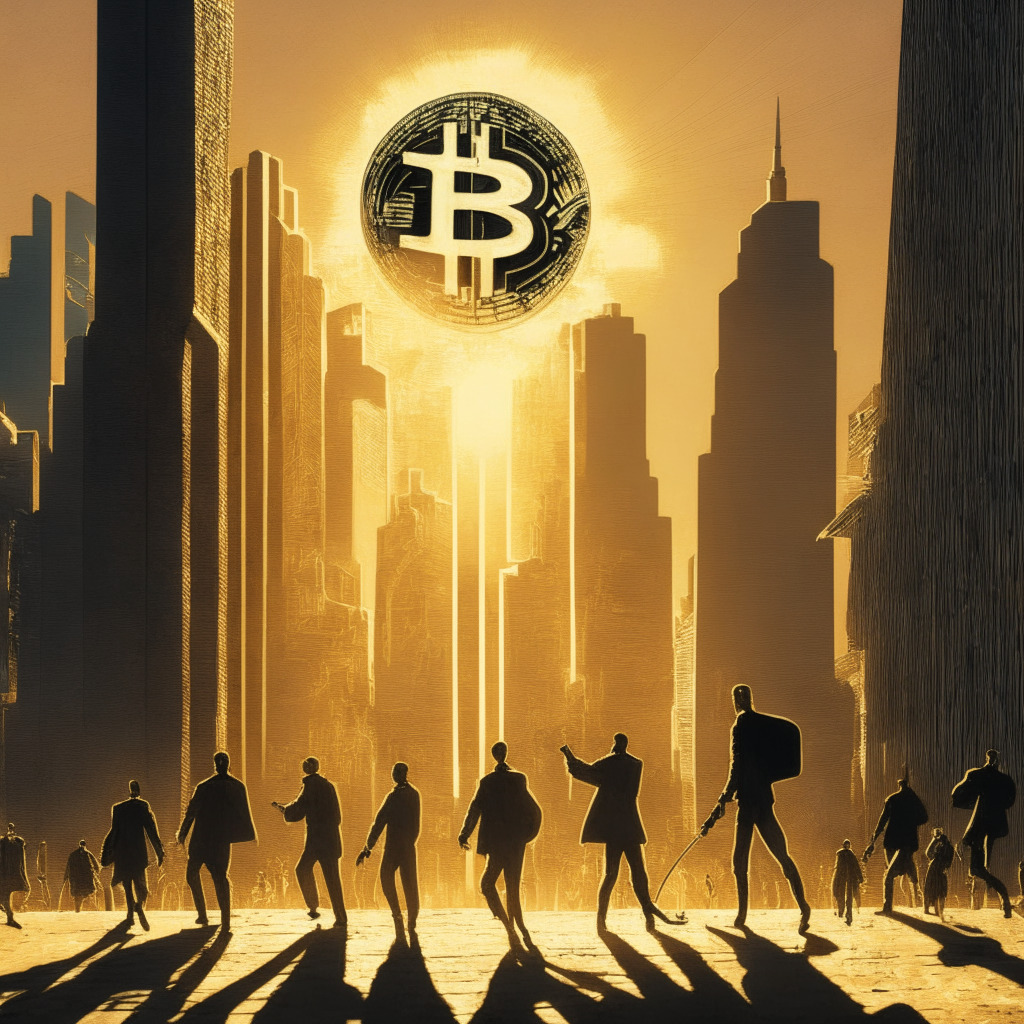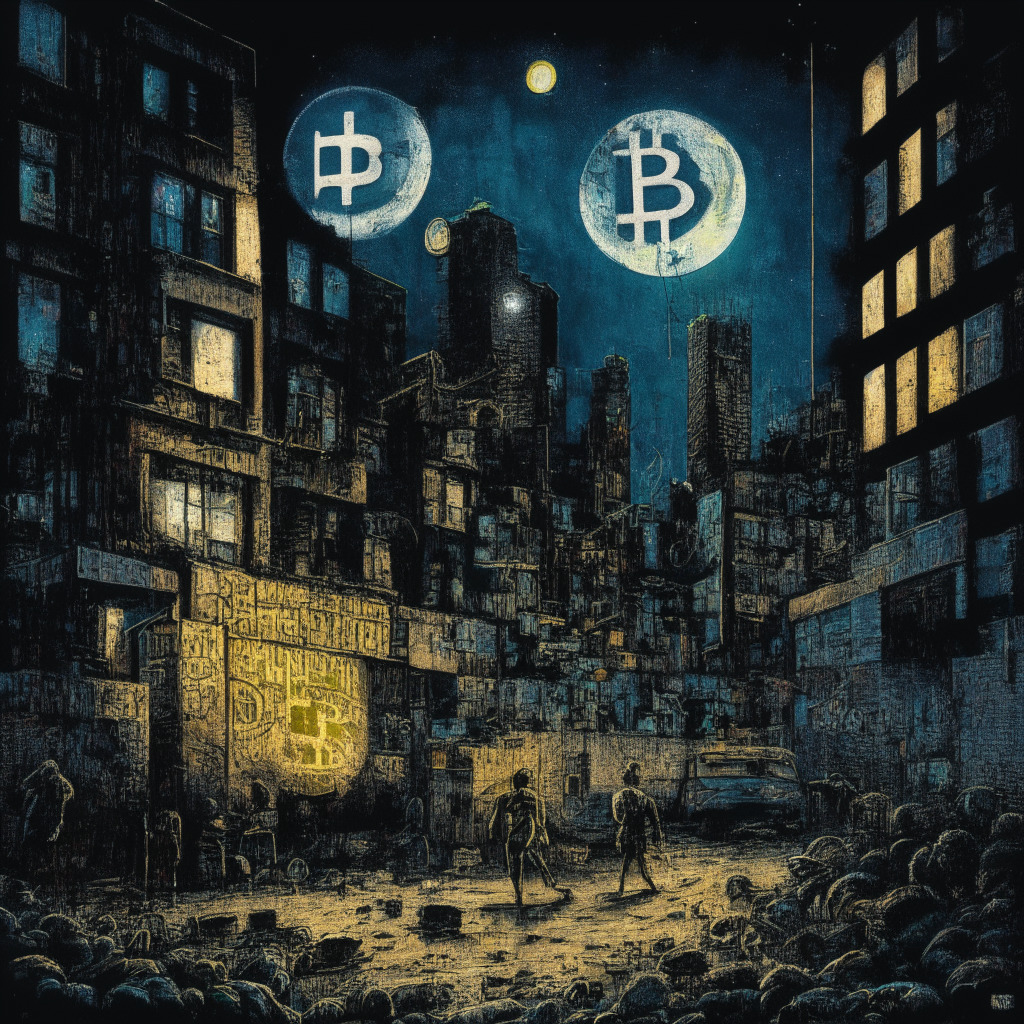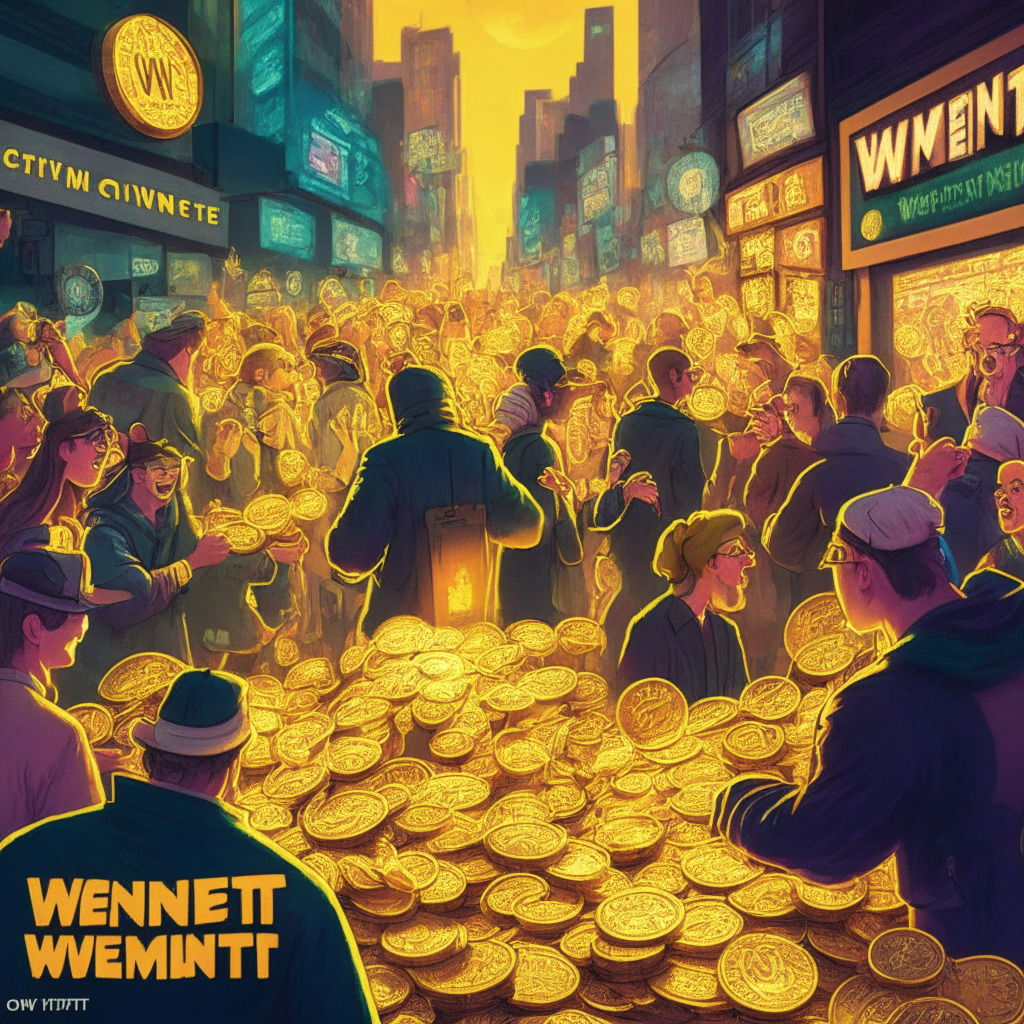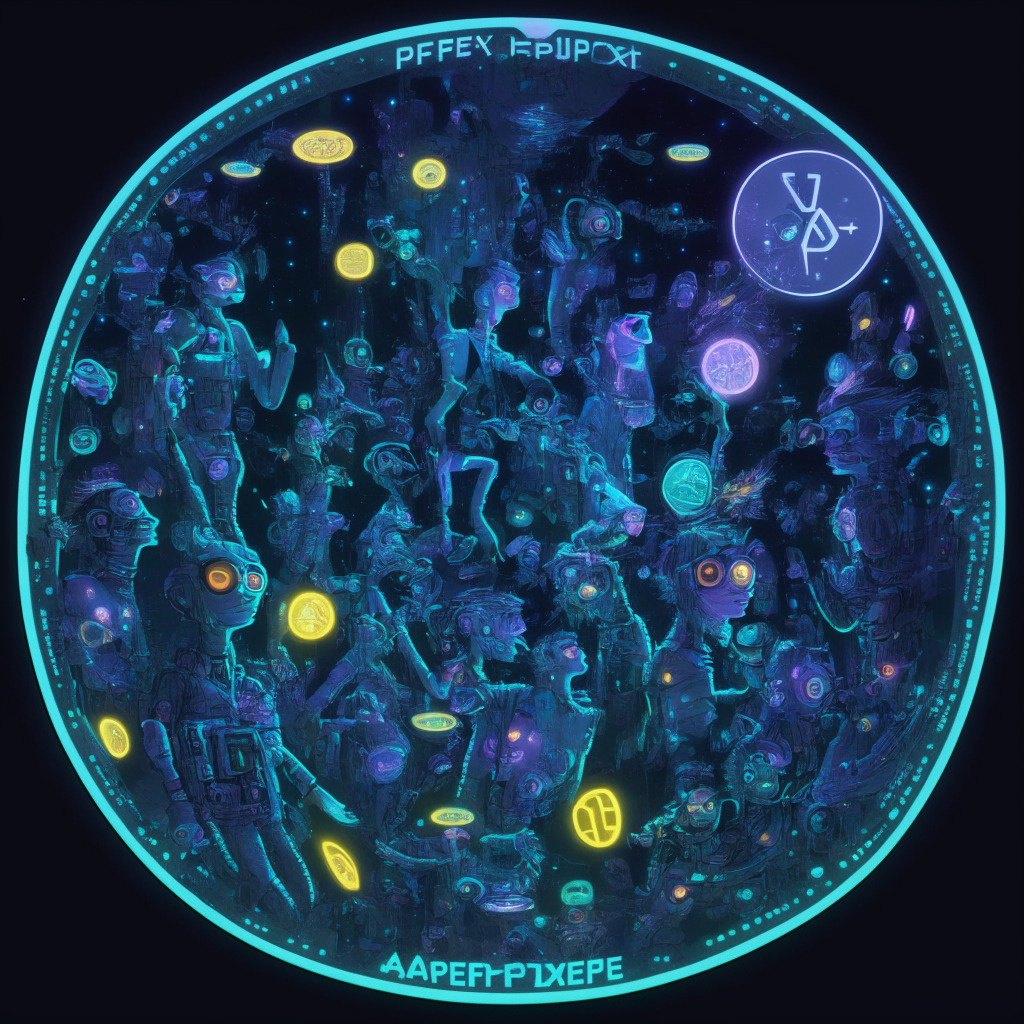French telecom firm Iliad is investing around $106 million USD in the local artificial intelligence (AI) sector, creating a laboratory for cutting-edge AI research in Paris. The lab will design general AI while possibly making use of Europe’s ‘most powerful cloud-native Ai supercomputer’ created by NVIDIA.
Search Results for: CEL
Draper’s Vision vs Reality: Bitcoin’s $250,000 Future Hindered by US Government Regulation
Tim Draper, a notable venture capitalist, contends that the U.S. government’s approach to blockchain regulation is obstructing the growth and adoption of this technology. Despite regret for his misfired prediction of Bitcoin hitting $250,000 by 2022, Draper sees a promising future for blockchain and crypto markets.
Ripple’s Expansion in the UK: Crypto Boom or Regulatory Burden?
Ripple, a US fintech and blockchain firm, is expanding its British presence amidst regulatory challenges in the US. This follows the UK’s strategic efforts to become a global hub for crypto and fintech firms, including legislation regulating cryptocurrencies and stablecoins. Critics, however, fear this may limit open innovation.
Cardano’s Potential Recovery and the Emerging Allure of Altcoins Like Bitcoin BSC
“Cardano’s price sees a humble growth, indicating a favorable bargain position with potential for significant growth. ADA’s support level shows stability, hinting the coin has bottomed out. Despite market conditions, ADA’s robust fundamentals and the growth of Cardano’s blockchain network indicate an upcoming increase in its price.”
Optimism Navigates Through Financial Headwinds Ahead of Major Token Unlock
“Ethereum layer 2 network, Optimism, faces a financial downturn as its token, OP has dropped almost 10% in the run-up to its planned token unlock on September 30. This downward trajectory in prices reflects the increased supply’s impact on asset value.”
Dollar Strength Index Surge: Examining its Potential Impact on Bitcoin’s Future
The Dollar Strength Index (DXY) reaching a 10-month high has implications for the cryptocurrency world, particularly Bitcoin. However, this doesn’t necessarily indicate a direct impact on Bitcoin’s performance. Amidst potential inflation and recession risks, an increase in the money supply could inadvertently favor Bitcoin in the long term.
Pushing Boundaries: Binance’s Plan for Stablecoins Expansion in Japan
“Binance plans to launch stablecoins pegged to the dollar, euro, and yen in partnership with Mitsubishi UFJ Financial Group in Japan. Leveraging MUFG’s blockchain platform, this initiative aims to launch in 2022, expanding existing crypto trading and payment services. Future offerings could also be introduced subject to regulatory approvals.”
Stablecoin Surge: Binance and MUTB’s Bold Move into Japan’s Potential $34 Billion Market
Cryptocurrency exchange Binance and Mitsubishi UFJ Trust and Banking Corporation are planning to issue Yen and foreign currency-denominated stablecoins in Japan, aligning with the country’s Payments Services Act. This venture aims to boost the adoption of Web3 in Japan, despite possible regulatory challenges. They plan to use the “Progmat Coin” platform, which prioritizes regulatory compliance in the issuance and management of stablecoins.
Decoding Vitalik Buterin’s Privacy Pool Concept: Navigating Blockchain Privacy & Regulatory Compliance
Ethereum co-founder Vitalik Buterin’s proposed privacy pool concept focuses on combining blockchain privacy and regulatory compliance, sparking meaningful discussion in the crypto world. However, concerns over unclear compliance framework, implementation struggles, and acceptance issues remain to be addressed.
Global Crypto Regulatory Trends: A Challenge or an Opportunity?
Recent global legislative actions are intensifying cryptocurrency regulation discussions. Hong Kong is focusing on regulated exchanges to decrease fraud-related investor losses, Thailand is taxing overseas crypto profits, Brazil is advocating for digital assets protection, and the U.K. and U.S. are developing bills targeting illegal crypto use and curtailing Central Bank Digital Currencies respectively. Regulatory changes highlight the balance between encouraging financial innovation and protecting citizens.
Balancing Potential and Threats: Unpacking Amazon’s Big Bet on AI Startup Anthropic
Amazon’s $4 billion investment in AI start-up Anthropic could enhance the world of artificial intelligence and open up new possibilities. However, concerns about lack of clear governance and Amazon’s increasing control over AI advancements spark worry amidst this technological progression.
Unforeseen Fortune or Fraud? How a Payment Error led to a $6.7 Million Crypto Heist
A Melbourne couple face trial after being erroneously credited $6.7 million by Crypto.com and spending most of it. The mishap occurred when an intended $100 refund massively inflated to $10.5 million. This is not Crypto.com’s first sizable transaction error.
China’s Bold Effort to Create Home-Grown AI Chip Factories: Ambitious Innovation or Risky Shortcut?
“China plans to bypass sanctions by constructing its own AI chip factories and leveraging particle accelerators to generate high quality light sources needed for chip manufacturing. Concerns of home-grown tech robustness, global commerce norms, and tech quality impact arise. This tech industry complexity demonstrates lengths nations will go for securing their AI future.”
Arbitrum’s Swift DAO Maneuver: A Power Leap or a Fall into Uncertainty?
The Arbitrum Foundation recently transferred unclaimed tokens worth $56 million into their network’s decentralized autonomous organization (DAO) treasury. While offering new governance possibilities, this move also carries risks and obligations for token holders, speaks volumes about the future for Arbitrum’s users, and poses questions about the speed of tokenizing and redistributing actions within just six months of their DAO launch.
Chainlink’s Signature Change: A Decentralization Dilemma Stirring Trust and Security Concerns
Chainlink recently made an unannounced change to its multi-signature wallet. The number of signatures required for transactions was reduced, which raised concerns about the decentralization risk of the blockchain platform. Despite clarifications from Chainlink, the skepticism remains and highlights the often unresolved trade-off between absolute decentralization and absolute security in the blockchain world.
China’s Central Bank Stakes Digital Yuan’s Global Appeal: A Revolutionary Step or a Risky Leap?
China’s central bank has updated its official CBDC app to allow overseas visitors to purchase digital yuan tokens with foreign credit cards. The update reflects an unprecedented convenience, aiming to push the usage of mobile wallets of the CBDC, providing users with seamless online experiences, including refunds for any unused funds. This move widens the application of e-CNY, promoting its use for online financial exchanges on major platforms.
Weekend Crypto Arena: Security Breaches, Executive Reshuffles and Surprising Discoveries
“Over the weekend, OpenSea faced a security breach warning, pointing to the importance of strong protective measures in cryptocurrency trading. Simultaneously, Bitcoin mining machines were discovered in a shocking police raid in Venezuela. Meanwhile, cryptocurrency platform Mixin Network reported a major attack with an estimated loss of $200M, underscoring the high-risk nature of crypto trading. Lastly, Coinbase secured Anti-Money Laundering compliance registration from Spain’s central bank, indicating growth possibilities in Europe.”
Bitcoin & Street Art: An Unconventional Crusade Against Traditional Finance Systems
Barcelona-based Street Cy₿er collective, comprising artists, activists, and bitcoin enthusiasts, is spreading Bitcoin-inspired graffiti across major European cities. By challenging the status quo and advocating for a decentralised financial future, they use art to invite a dialogue around Bitcoin and its potential global impact. Their creations range from calls for Bitcoin-funded education to predictions of a future of peace due to Bitcoin’s scarcity and transparency.
Surge of Wall Street Memes Token: A Game Changer or Just Another Meme Coin?
The Wall Street Memes token has raised $1.4m in 24 hours, setting the stage for one of the year’s largest presales. Its goal is to leverage the meme stocks movement into cryptocurrency, offering an innovative approach to decentralization in finance. The token will be listed on multiple top-tier exchanges from September 26th, with potential for significant fundraising acceleration. Not merely an amusing variant of meme coin, its vibrant online community and successful NFT Collection minting point to a promising launch.
Shifting Dynamics in Bitcoin Market: Calm Before the Storm or a New Stability Era?
Recent data reveals that short-term holders now own less of the available BTC, signaling a market shift towards long-term holding, suggesting potential stability in the cryptosphere. However, these changes in investor dynamics may not favor the remaining short-term players who are currently facing losses.
Navigating the Future of Bitcoin Mining: Sustainable Practices and Next-Gen Technology
“The future of Bitcoin mining focused on sustainable development and increased efficiency at the World Digital Mining Summit. The new Antminer S21 and S21 Hydro ASIC miners were unveiled, showcasing impressive performance. As Bitcoin mining becomes more challenging, the industry is shifting towards efficiency and renewable energy sources. Despite Bitmain’s complicated history, the S21’s impact depends on its reliability, availability, and pricing.”
Surging Ahead: Base Trumps Solana in DeFi TVL, But Is This Sustainable?
“Coinbase’s layer 2 network, Base, has outperformed Solana in the decentralized finance sector, surpassing it in total value locked (TVL). With a significant 97.21% increase in TVL over 30 days, Base emerged as a key player thanks to two Base-native projects, Aerodrome Finance and Friend.tech, despite the inherent volatility of the crypto domain.”
Tether’s Loan Strategy: Growth by Risk or Recipe for Disaster?
Tether, the company behind the popular USDT stablecoin, reportedly lends out stablecoins at a high level, with loans amounting to $5.5 billion as of end-June 2021. However, concerns arise given the lack of clear transparency about the firm’s liquidity, capital reserves, and loan specifics. Reassurance comes from Tether’s claim that its tokens are fully supported by cash or liquid assets.
Nansen Blockchain Breach: Spotlight on Crypto Security and Potential for Innovation
Recently, blockchain analytics company, Nansen, experienced a security breach, impacting approximately 6.8% of its users. This incident emphasizes the urgent need for robust security systems, data protection, and a balance between blockchain possibilities and its inherent risks.
Decoding the Legal Fray: Fenwick, FTX and the Boundaries of Crypto Accountability
“Fenwick & West, a Silicon Valley law firm, is accused of involvement in a fraud involving the insolvent crypto marketplace, FTX. The firm asserts its services were within legal realms and lacked awareness of fraudulent actions. The case underscores the complexities of cryptocurrency and brings focus on stakeholder accountability.”
Parsing Katie Haun’s Crypto Optimism amid Regulatory Concerns: A Deep Dive into Crypto Market Evolution
Former a16z general partner Katie Haun maintains optimism about the cryptocurrency market despite recent corrections. She manages two investment funds translating to $1.5 billion, signaling her bullish sentiments. Haun highlighted regulatory issues, criticizing the SEC for overstepping its original jurisdiction, specifically in non-traditional areas like crypto.
Unveiling Consensys Fellowship Program: Catalyst for Web3 Startups or Impractical Venture?
Blockchain leader Consensys introduces its first Consensys Fellowship Program, aiming to support Web3 startups. The non-equity program offers potential investments of up to $1.5 million, hands-on workshops, mentorship from industry professionals, and flexible part-time structure. It encourages innovative Ethereum use cases and startup growth.
Machiavellian Principles as a Key to Decentralized Governance: Opportunities and Challenges
“Machiavellian principles are seen as a potential solution for issues concerning decentralized autonomous organizations (DAOs) such as power centralization, according to venture capital firm Andreessen Horowitz. DAOs must balance power, entertain constant opposition, and adopt lockup mechanisms for stakeholders to achieve effective decentralized governance.”
Binance’s Stablecoin Delisting: A Regulatory Avalanche or Necessary Compliance Step?
“Binance plans to delist all stablecoins from its European platform by June 2024, complying with Europe’s tight regulation. The move, following the passing of Europe’s crypto regulation law, MiCA, could significantly impact the European crypto market. Meanwhile, the U.S. grapples with its digital currency dilemma, revealing distinct attitudes towards financial digitization.”
Galaxy Digital’s European Expansion: Pros, Cons and the Main Conflict Amid Regulatory Differences
Digital asset services firm, Galaxy Digital has appointed Leon Marshall as its inaugural European Chief Executive, signaling a stride towards global expansion. This venture showcases the firm’s determination to extend its territory despite challenging market trends, spurred by advancements in European digital asset regulation – a factor that’s presenting Europe as a promising crypto hub.
AstroPepeX: The First AI-Spawned Memecoin Sparks Excitement, Questions, and Concerns
An AI, specifically ChatGPT, crafted a memecoin, “AstroPepeX,” valued at $3.5 million, demonstrating a potential AI-Blockchain collaboration. This development questions overreach of AI, control, regulation, and potential risks in the unpredictable crypto market. This is especially pertinent as AI-generated tokens can impact investors and small-scale developers.
Waning or Waiting? The Future of NFTs Amid Surging Value Decline
The recent study reveals that a striking 95% of mainstream non-fungible tokens have considerably declined in value. While some NFT users believe this to be a temporary effect of the crypto winter and predict a recovery, others acknowledge the diminished value of their digital assets. This raises crucial questions about the future of the NFT marketplace.































